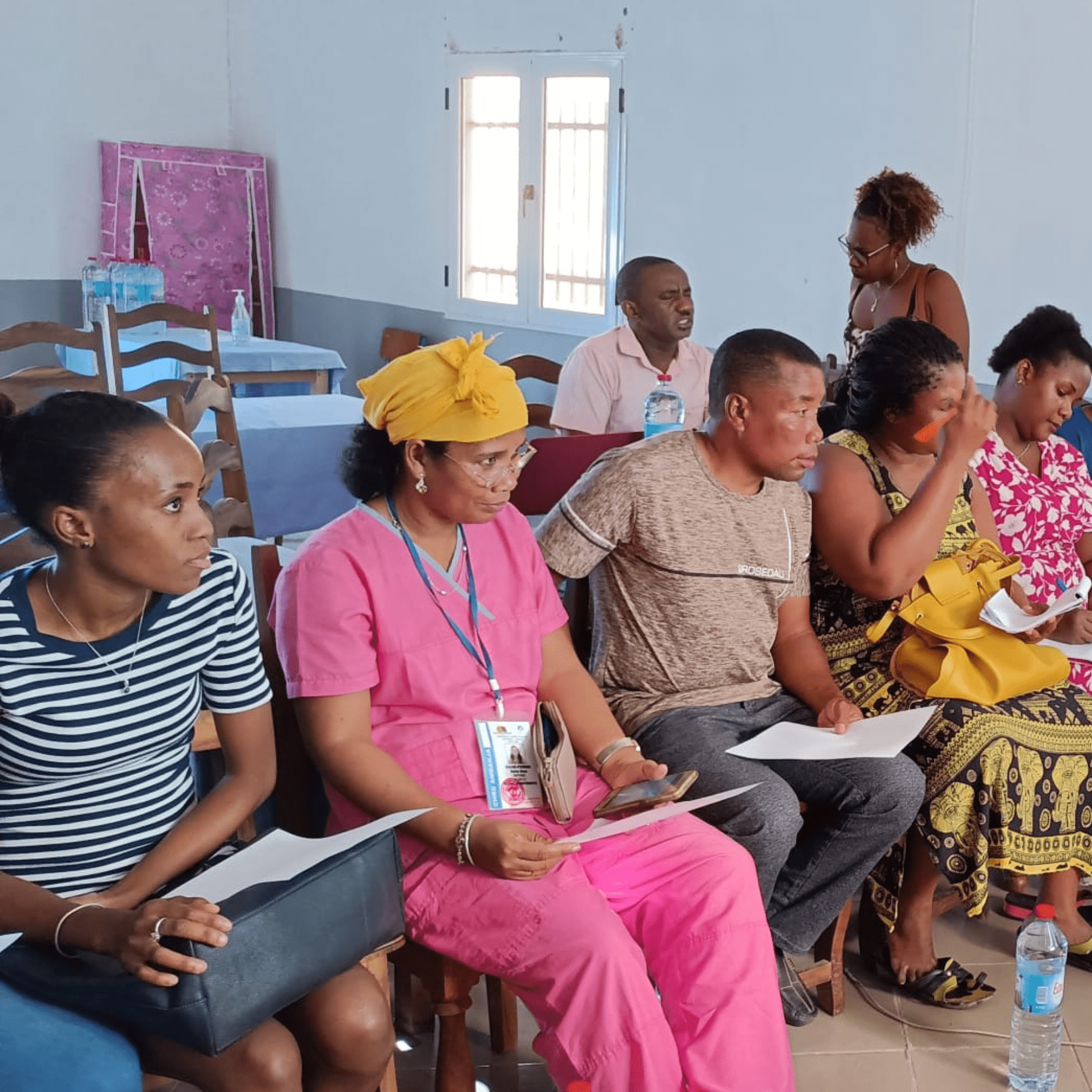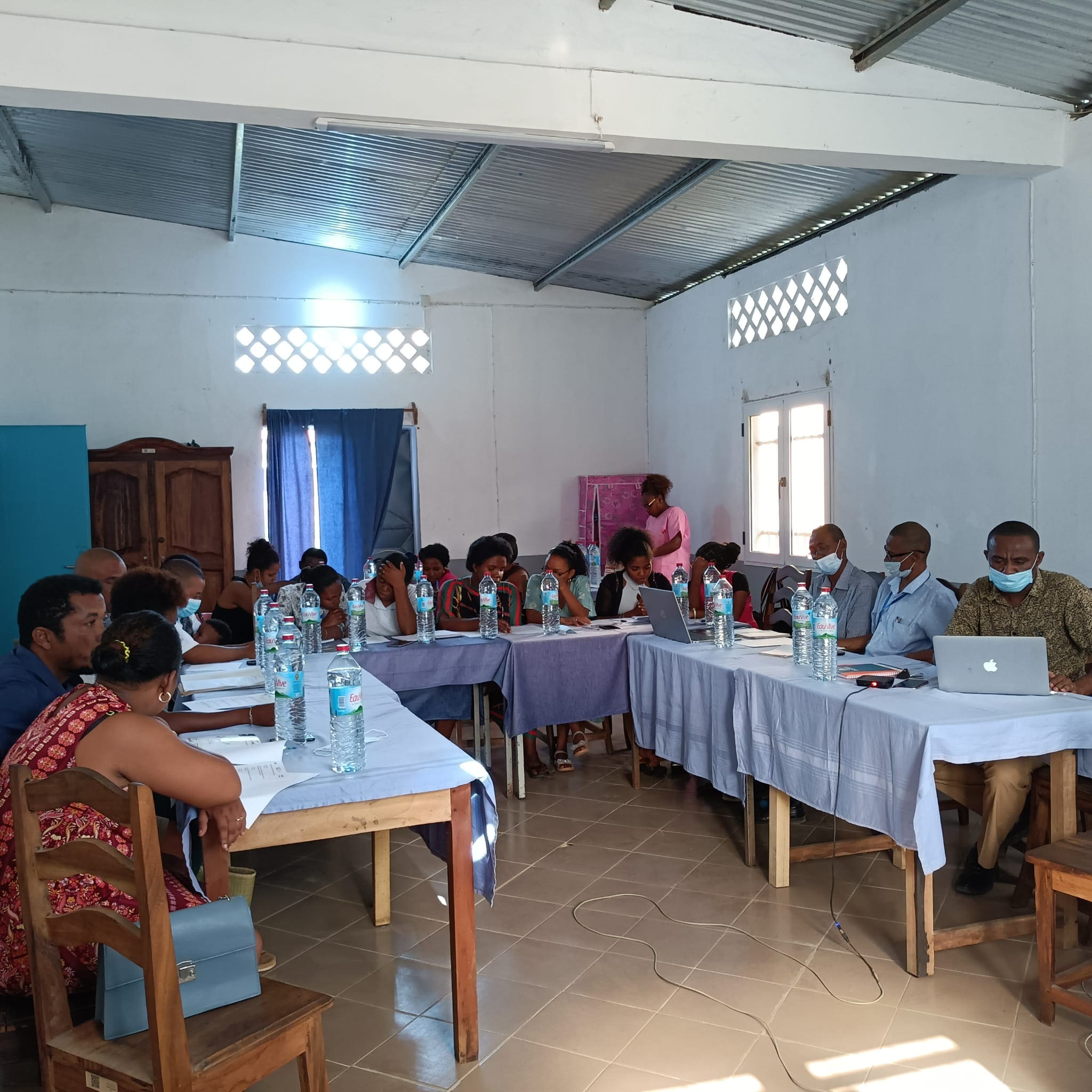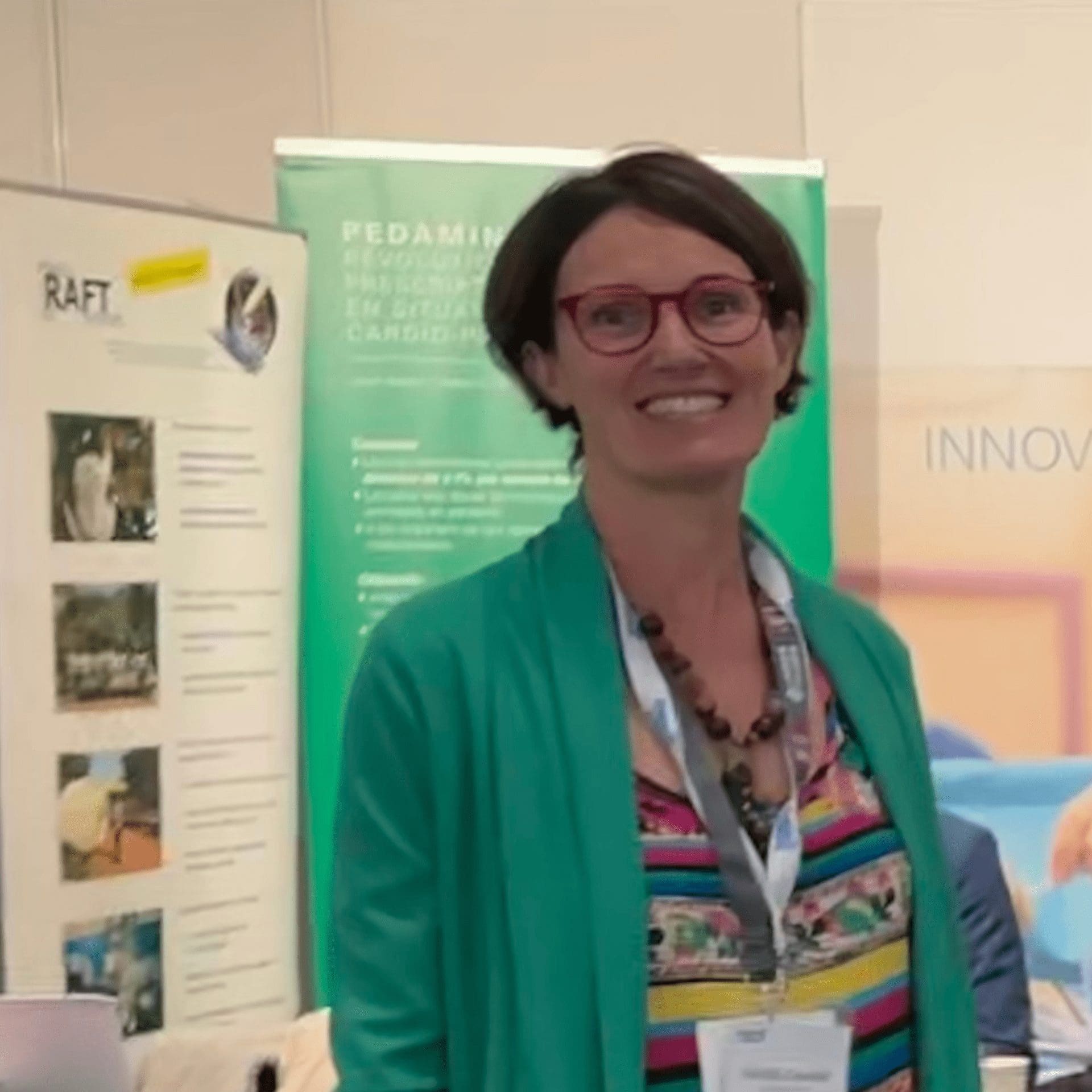
Maternal and Neonatal Health
Key figures

6
out of 10 birth take place at home

1
training designed in partnership

34
health personnel have been trained in 2023
This project is now complete.
Combating Maternal and Neonatal Mortality
In Madagascar, six out of ten births take place at home, and there are 353 maternal deaths per 100,000 live births and 20 neonatal deaths per 1,000 live births.
These high figures can be explained, among other things, by the low level of skills of healthcare personnel in dealing with complications related to pregnancy and childbirth, as well as by the insufficient use of health services by pregnant women and their families.
Since August 2020, thanks to financial support from ESTHER Switzerland, Enfants du Monde has been working with the Geneva University Hospitals (HUG) to set up training for healthcare workers at the Ambanja District Referral Hospital, in collaboration with the country’s training team and the hospital, to improve the quality of maternal and neonatal care.
Our Impact
- Training ensures adequate and respectful care for pregnant women, new mothers and newborns.
- Health workers acquire the skills needed to better communicate with and welcome women during consultations.
- Women are informed about the risks associated with pregnancy and health workers obtain their consent for basic medical procedures.
Remote Training for the Local Team
The health crisis prevented the Enfants du Monde team from travelling to Madagascar to deliver the training. It was therefore carried out remotely during autumn 2020. The training content was organised into several modules available on an online platform, translated into Malagasy in the form of audio recordings.
The following modules were covered:
- the maternal and neonatal health situation in the world and in Madagascar
- maternal and neonatal health rights
- respect for women and newborns
A module on COVID-19 was added to inform healthcare providers about the impact of the disease on maternal and neonatal health. This section informs medical staff on how to protect themselves and help keep women and children safe during consultations.
In addition to a theoretical part, the training includes a practical component. This allows healthcare workers to put the training content into practice and regularly exchange ideas with the training team in order to make continuous improvements. This method also helps identify the training needs of healthcare professionals. Enfants du Monde plans to expand its scope beyond the Ambanja district hospital by making the training available to healthcare workers in rural health centres.
Cecilia Capello Health specialist,
More respectful maternal and neonatal care helps improve women’s satisfaction with medical services and encourages them to visit health centres.
We have built strong relationships with the team at Ambanja Hospital, learning to rely on them completely to implement each stage of the project. The team on the ground has been extremely helpful in facilitating training at the local level.
A Committed Team With a Wide Range of Skills
Between the experts from the HUG and Enfants du Monde, the local team at the Ambanja District Hospital in Madagascar, members of the Malagasy diaspora in Geneva and volunteers, many different people were involved in designing and delivering this distance learning course.
Providing Support to Pregnant Women During the Pandemic
Special attention has also been given to information about COVID-19 to promote protective measures among women and provide them with information about the impact of the disease during pregnancy and on newborns, in order to help them adopt the right behaviours.
In collaboration with Terre Innovative Healthcare, posters aimed at pregnant and breastfeeding women have been developed to explain protective measures and precautions to take to protect themselves from COVID-19. These posters have helped to disseminate vital information for the health of women and their babies, such as the importance of continuing to breastfeed even for women infected with the virus.
Future Prospects
Following the excellent results obtained during the pilot phase of the project, Enfants du Monde will continue the training between 2022 and 2024 with 40 healthcare providers in 11 health centres and at the Ambanja District Referral Hospital.
Healthcare workers in delivery rooms will be trained in respectful care. A programme to understand the causes of maternal mortality, including e-learning and e-simulation, will also be implemented. Finally, emergency simulations will be organised at unspecified times to help evaluate and improve responses to obstetric emergencies.
Financial Partners


My Donation Makes a Difference
I provide bilingual school manuals in French and Mooré (the local language) for 10 children in Burkina Faso, enabling them to make better progress at school.
I’m helping 700 pregnant women in Bangladesh to prepare for the birth of their baby and the risks associated with childbirth.
I fund a continuing education training in bilingual education for 17 teachers in Guatemala, to improve the quality of their lessons.




